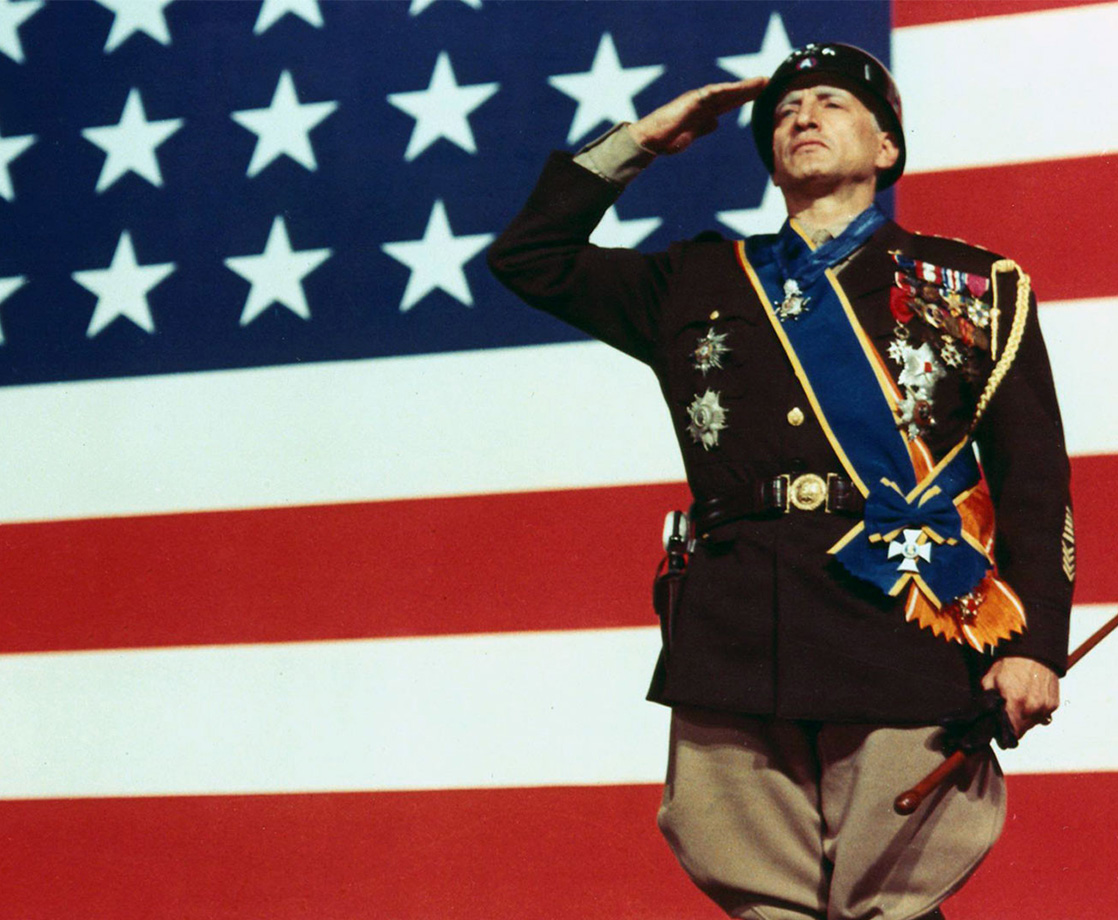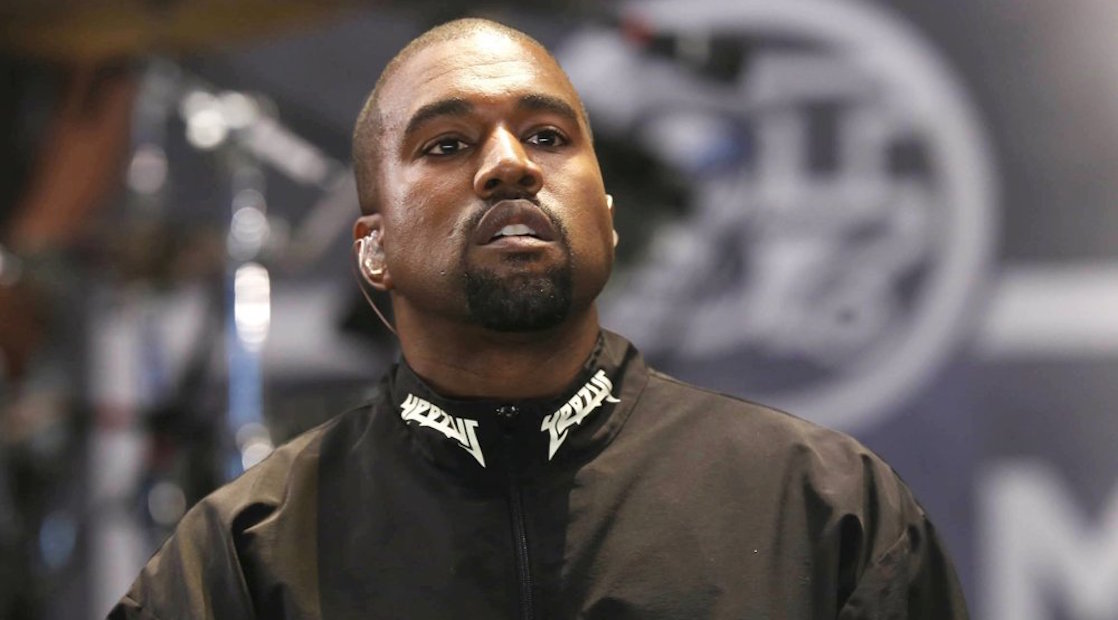With Memorial Day so close at hand, it makes sense that Netflix would choose today to debut War Machine, the satirical take on the real-life loose cannon General Stanley McChrystal (here named Glenn McMahon, played by Brad Pitt) and his impossible mission to rebuild Afghanistan’s government. But for those seeking less on-the-nose viewing content to coincide with the holiday weekend, we got you covered with the following military-themed Netflix picks.
Our first recommendation is the extensive documentary Five Came Back, which features filmmakers like Francis Ford Coppola, Steven Spielberg, and Guillermo del Toro discussing the cinematic contributions made by some of Hollywood’s greatest directors during World War II. Men like Frank Capra and John Ford agreed to make training films for troops that had a massively influential impact on the war effort.
Coppola also figures in our next pick. Before making Apocalypse Now, he co-wrote the Oscar-winning screenplay for Patton, the acclaimed account of the legendary General’s WWII exploits. The late George C. Scott gives a tour de force lead performance in a classic geared to make audiences feel patriotic.
One can perhaps appreciate Tarantino’s one-of-a-kind war picture Inglourious Basterds (complete with its alternative conclusion to WWII) even more when compared with Five Came Back and Patton, especially since it’s a film in which cinema itself plays a prominent part and is filled to the brim with big personalities, including Academy Award winner Christoph Waltz’s despicable Nazi commander Hans Landa.
By contrast, the moving documentary Brothers in War (2014), featuring revealing interviews with Vietnam veterans who served in 1967, is a far more sobering experience that openly deals with death on the battlefield and the reactions of vets who came home to anti-war protestors.
Sand Castle is our final Memorial Day recommendation, a reflective tale about a conscientious Private’s personal struggles in Iraq. The film offers a more grounded portrayal of war that takes into account the fears and doubts that afflict soldiers, but also the fact that sometimes innocent people get caught in the crossfire.
Warning: May Contain Spoilers
Five Came Back (2017)
Narrated by Meryl Streep
Director: Laurent Bouzereau
Genre: Documentary
This fascinating three-part documentary (based on a book by Mark Harris) details how Frank Capra (It's a Wonderful Life), John Ford (The Searchers), William Wyler (The Best Years of Our Lives), George Stevens (Shane), and John Huston (The Treasure of the Sierra Madre) — five of the most distinguished directors in history — put their respective Hollywood careers on hold to enlist in the US military and make propaganda films during World War II. Through extensive interviews, Steven Spielberg, Francis Ford Coppola, Guillermo del Toro, Lawrence Kasdan (The Big Chill) and Paul Greengrass (director of three Bourne movies) add insight to the lives and artistic endeavors of these dedicated filmmakers who paused their Hollywood careers in order to serve the country.
Five Came Back takes us back to a time before network newscasts, when the only way the public could see film footage of Hitler’s Nazi Germany was in movie theaters. It’s remarkable how much cinema played a part in combating American isolationism and building up patriotism. To its credit, the doc doesn’t dodge the fact that some of these pro-USA films were edited to diminish the number of GI casualties and how blatantly racist some of these films were towards the Japanese.
For those interested, Netflix is also streaming many of the actual war time films featured in Five Came Back, including Huston’s Let There Be Light, an ahead-of-its-time document of hospitalized soldiers dealing with trauma that was made before PTSD was recognized as a real and rampant disorder.
Patton (1970)
Starring: George C. Scott, Karl Malden
Director: Franklin J. Schaffner
Genre: Drama, Biography
So much has already been said about George C. Scott’s grand performance as General George S. Patton, for which he won an Academy Award (and refused to accept). But it’s true, Scott’s on screen presence is so commanding that it’s difficult to see anyone else outdoing the late actor. Both in personality and physical stature, he towers over the proceedings like an almost-mythical figure walking amongst mere mortal — a religious but foul-mouthed leader who is consumed with winning at all costs.
The opening scene of this nearly three-hour epic, in which Patton addresses troops while standing in front of a giant American flag, is one of the most famous moments in cinema. Considering that the film was released during the Vietnam War, it’s not hard to imagine that the WWII General’s gung-ho speech about America never losing a war was interpreted as a jingoistic rallying cry. Patton embodies the sometimes-inflated, ultra-patriotic feelings still felt in many staunch conservatives to this day. The film, however, portrays the General with warts and all, depicting his overly macho, un-PC attitude and over-the-top ego that made him notorious in more ways than one.
Inglourious Basterds (2009)
Starring: Christoph Waltz, Brad Pitt, Mélanie Laurent, Michael Fassbender, Diane Kruger, Eli Roth
Director: Quentin Tarantino
Genre: Drama
Inglourious Basterds is one of the most unconventional war movies ever made, existing in an alternate universe and influenced as much by war movies from the 1940s as revenge-themed Spaghetti Westerns. For an American film, it has an unusual amount of foreign language spoken, and Tarantino has fun constructing a story in which cinema itself is an important character. For the most part, it also forgoes the usual battle sequences involving tanks, air strikes, and other large-scale military operations in favor of up-close confrontations, dark humor, and unforgettable characters.
The performances are nothing to sneeze at, either. Brad Pitt shows you exactly why he’s a movie star portraying Lt. Aldo Raine, leader of the secret U.S. military unit whose sole purpose is to kill Nazis. And Christoph Waltz won an Oscar for his role as Colonel Hans Landa, the so-called “Jew Hunter”/master linguist/arrogant slime bucket — e.g. one of the most memorable villains of the last 20 years.
Brothers in War (2014)
Narrated by Charlie Sheen
Director: Liz Reph
Genre: Documentary
Brothers in War is a compelling National Geographic documentary about Charlie Company (4th Battalion, 47th Infantry Regiment, 9th Infantry Division), “one of the last combat infantry companies in the Vietnam War to be drafted, trained and sent to battle together.” This, in turn, created a special bond between the 160 soldiers, of whom 26 were killed and 105 were wounded.
Over 40 years later, a handful of survivors agreed to on-camera interviews where they openly spoke about the war. In one surprisingly humorous instance, a vet talks about the time one of the platoons came across a marijuana field and decided to pocket some grass for later. But as you might expect, that anecdote is outweighed by far more hellish stories.
Part of what helps makes this documentary feel more personal than other war docs is the use of various vets’ home movies and recorded letters to loved ones back home. These elements underscore the soldiers’ desires to return to a normal life, as well as the pain and trauma many of them experienced while on active duty.
Sand Castle (2017)
Starring: Nicholas Hoult, Logan Marshall-Green, Glen Powell, Henry Cavill, Neil Brown Jr.
Director: Fernando Coimbra
Genre: Drama
Written by a former machine gunner in the army, Sand Castle is the fictional story of Private Matt Ocre's (Nicholas Hoult) tour of duty in Iraq. He’s part of a mission to restore the water supply to a small and hostile village. The war, as seen from his perspective, is an impossible-to-win situation for U.S. forces, and it conjures mixed feelings in the protagonist. He goes from overcoming feelings of cowardice to making attempts to treat the villagers as human beings. But that’s a difficult thing to do when soldiers can’t tell the difference between civilians and enemies.
This is not necessarily an anti-war film. It does, however, raise the issue of soldiers retaliating out of anger when their comrades are killed. It’s a slippery slope when one gets caught up in emotions and ignores the rules of engagement. When it’s all said and done, the meaning behind the film’s title becomes apparent. A soldier like Ocre can expend serious amounts of blood, sweat, and tears and only achieve fleeting results, similar to building sandcastles on the beach that the tide will surely take away.











